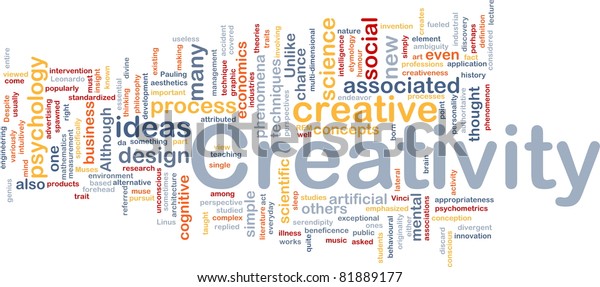For the knowledge of cognitive psychology, it is very important to know about cognition. What actually the cognition is? Actually, the term Cognition refers to a range of mental processes relating to the acquisition, storage, manipulation, and retrieval of information. The term “cognition” stems from the Latin word “ cognoscere” or “to know”. It underpins many daily activities, in health and disease, across the age span. Cognition can be separated into multiple distinct functions, which depend on particular brain circuits and neuromodulators.
Cognitive psychology is the scientific investigation of human cognition, that is, all your mental abilities perceiving, learning, remembering, thinking, reasoning, and understanding. Fundamentally, cognitive psychology studies how people acquire and apply knowledge or information. It is closely related to the highly interdisciplinary cognitive science and influenced by artificial intelligence, computer science, philosophy, anthropology, linguistics, biology, physics, and neuroscience.
Summary
Cognitive psychology is the scientific study of mental processes such as “attention, language use, memory, perception, problem solving, creativity, and thinking”.
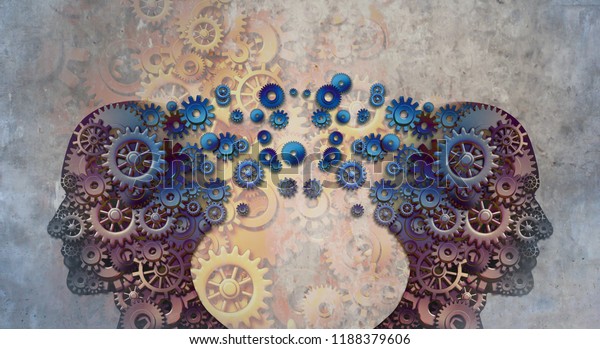
What is the history of cognitive psychology?
Cognitive psychology in its modern form incorporates a remarkable set of new technologies in psychological science. Although published inquiries of human cognition can be traced back to Aristotle’s ‘’De Memoria’’ (Hothersall, 1984), the intellectual origins of cognitive psychology began with cognitive approaches to psychological problems at the end of the 1800s and early 1900s in the works of Wundt, Cattell, and William James (Boring, 1950).
Cognitive psychology declined in the first half of the 20th century with the rise of “behaviorism", the study of laws relating observable behavior to objective, observable stimulus conditions without any recourse to internal mental processes (Watson, 1913; Boring, 1950; Skinner, 1950). It was this last requirement, fundamental to cognitive psychology, that was one of behaviorism’s undoings. For example, lack of understanding of the internal mental processes led to no distinction between memory and performance and failed to account for complex learning (Tinklepaugh, 1928; Chomsky, 1959). These issue led to the decline of behaviorism as the dominant branch of scientific psychology and to the “Cognitive Revolution”.
The Cognitive Revolution began in the mid-1950s when researchers in several fields began to develop theories of mind based on complex representations and computational procedures (Miller, 1956; Broadbent, 1958; Chomsky, 1959; Newell, Shaw, & Simon, 1958). Cognitive psychology became predominant in the 1960s (Tulving, 1962; Sperling, 1960). Its resurgence is perhaps best marked by the publication of Ulric Neisser’s book, ‘’Cognitive Psychology’’, in 1967. Since 1970, more than sixty universities in North America and Europe have established cognitive psychology programs.
Summary
The cognitive approach began to revolutionize psychology in the late 1950sand early 1960’s, to become the dominant approach (i.e., perspective) in psychology by the late 1970s. Interest in mental processes had been gradually restored through the work of Piaget and Tolman. Tolman was a ‘soft behaviorist’.
Sub-disciplines of Cognitive Psychology
1. Experimental cognitive psychology
This discipline of cognitive psychology uses experiments and hypothesis testing to study the representations and processes underlying cognition. According to David Marr(neuroscientist), one should understand any cognitive process at three levels of analysis:
a) Computational: what does a certain system do, which problems it solves and why (for example, which brain area contains the rules of arithmetic to solve 2+2 problem)
b) Algorithmic/representational: how systems do what they do and what representations and processes they use.
c) Physical: how does the system physically work; its physical substrate (which neural structures are involved etc.).
2. Cognitive neuropsychology
This discipline traditionally studies developmental and accidental brain injuries and neurological illnesses in order to understand functioning of a normal brain. Cognitive neuropsychology accepts the idea of a functional localization: that if a specific cognitive problem is found after an injury to a specific brain area, it is possible that this part of the brain is in some way involved.
However, cognitive neuropsychology has numerous limitations. Firstly, it is possible that the link is not that simple; functions may be much more distributed across the brain - rather than being performed by one area. Secondly, there are great individual differences, which make it quite problematic to generalize results based on a single case.
Also, often brain ‘relocates’ the functions which can not longer be performed by a damaged area to other parts of the brain; this is what is referred to as brain compensatory strategies. They are more frequent in patients with developmental injuries, but may occur in those with accidental damages as well - especially in younger age, when the brain is still flexible. This short video offers a great example of such a case: a child had a stroke during the pre-natal period, which led to the huge loss of white and grey matter in the language areas of her brain. However, by the age of 6 she could produce and comprehend speech like normal children.
3. Computational cognitive science
Computational cognitive science uses computational modelling in order to symbolically represent functioning of the brain and its systems in a formal and logical way. One of such well-known models is a dual-route cascaded model of reading (Coltheart et al., 2001) which is described in one of the Psychology of Language.
[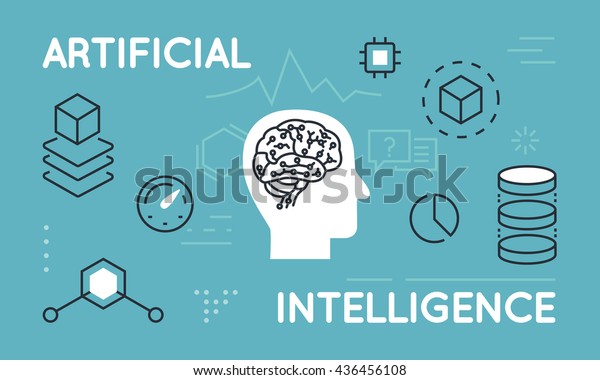
Computational models of cognition have been used in artificial intelligence in attempts to create an artificial neural network which would replicate human mental processes. For example, in their research Sejnowski and Rosenberg (1987) created a program called NetTalk, which could learn to pronounce English words by being shown text as input and matching phonetic transcriptions for comparison. Their aim was to explore the mechanisms of learning to pronounce words.
4. Cognitive Neuroscience
This field studies biological substrates underlying cognition, with a specific focus on neurology of mental processes. Its main question is: how does brain perform its cognitive functions? The methods used in the field are numerous, and they quickly develop. Some of them are:
a) Single unit recordings
This method allows to measure activity of a single neuron by inserting a microelectrode in the brain. When a neuron generates action potential, the electric current goes through the membrane in the axon and soma; microelectrode then records the rate of change in voltage in respect to time. The microelectrodes can be placed either within or very close to the membranes of the cells, thus recording signals either intracellularly or extracellularly.
b) Event-related potentials (ERPs)
ERP is a measured brain response to a specific sensory, cognitive or motor stimuli. Its big plus is that it is a non-invasive way of evaluating activity and functioning of the brain. It is also much cheaper than inserting microelectrodes and using fMRI and PET. However, it only produces temporal, but not spacial resolutions. In other words, it can show very precisely when brain activates - however not where it activates.
ERP waveform showing several components including waves N100 and P300
c) Magnetic Resonance Imaging (MRI and fMRI)
fMRI measures brain activity by detecting changes in blood flow; the idea is that blood flows to the the parts of the brain which are ‘at work’ during a particular cognitive activity/task. The procedure uses the change in magnetization between oxygen-rich and oxygen-poor blood as its basic measure. Brain activation can be presented graphically by color-coding the strength of activation across the brain or the specific region studied. The technique can localize activity to within millimetres but, using standard techniques, within a window of a few seconds.
[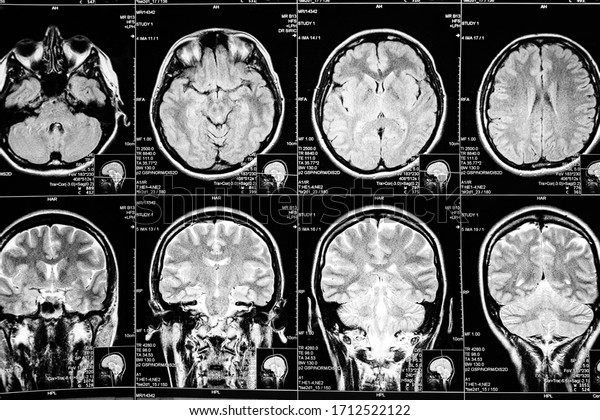
Summary
Cognitive Psychology is a broad field with many sub-disciplines. Each focuses on a different condition or group of people.
What are cognitive processes?
There are many different types of cognitive processes. These include:
- Attention : Attention is a cognitive process that allows people to focus on a specific stimulus in the environment.
- Language : Language and language development are cognitive processes that involve the ability to understand and express thoughts through spoken and written words. It allows us to communicate with others and plays an important role in thought.
- Learning : Learning requires cognitive processes involved in taking in new things, synthesizing information, and integrating it with prior knowledge.
- Memory : Memory is an important cognitive process that allows people to encode, store, and retrieve information. It is a critical component in the learning process and allows people to retain knowledge about the world and their personal histories.
- Perception : Perception is a cognitive process that allows people to take in information through their senses (sensation) and then utilize this information to respond and interact with the world.
- Thought : Thought is an essential part of every cognitive process. It allows people to engage in decision-making, problem-solving, and higher reasoning.
Summary
Cognition includes basic mental processes such as sensation, attention, and perception. Cognition also includes complex mental operations such as memory, learning, language use, problem solving, decision making, reasoning, and intelligence.
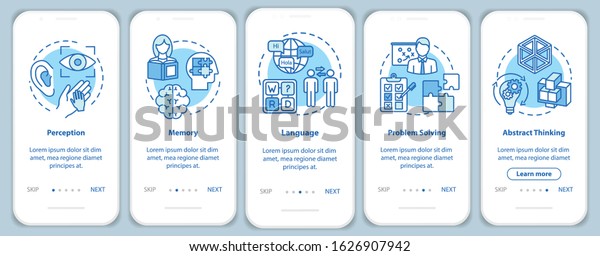
What is the impact of cognitive processes?
The cognitive processes have a wide-ranging impact that influences everything from daily life to overall health.
Perceiving the World
As people take in sensations from the world around them, the information that they see, hear, taste, touch, and smell must first be transformed into signals that their brain can understand. The perceptual process allows them to take in sensory information and convert it into a signal that their brain can understand and act upon.
Forming Impressions
The world is full of an endless amount of sensory experiences. To make meaning out of all this incoming information, it is important for our brain to be able to reduce our experience of the world down to the fundamentals. We remember everything, so events are reduced down to the critical concepts and ideas that we need.
Filling in the Gaps
In addition to reducing information to make it more memorable and understandable, people also elaborate on these memories as they reconstruct them. In some cases, this elaboration happens when people are struggling to remember something. When the information cannot be recalled, the brain sometimes fills in the missing data with whatever seems to fit.
Interacting With the World
Cognition involves not only the things that go on inside your heads but also how these thoughts and mental processes influence your actions. Your attention to the world around you, memories of past events, understanding of language, judgments about how the world works, and abilities to solve problems all contribute to how you behave and interact with your surrounding environment.
Summary
Cognition includes different cognitive processes, like learning, attention, memory, language, reasoning, decision making, etc., which are part of our intellectual development and experience. This is important for understanding cognitive processes and how they influence our behavior and emotions.
Basic Assumptions of Cognitive Psychology
- Mediational processes occur between stimulus and response:
Behaviorists rejected the idea of studying the mind because internal mental processes cannot be observed and objectively measured.
However, cognitive psychologists regard it as essential to look at the mental processes of an organism and how these influence behavior.
Instead of the simple stimulus-response links proposed by Behaviorism, the mediational processes of the organism are important to understand. Without this understanding, psychologists cannot have a complete understanding of behavior.
- Psychology should be seen as a science:
Cognitive psychologists follow the example of the behaviorists in preferring objective, controlled, scientific methods for investigating behavior.
They use the results of their investigations as the basis for making inferences about mental processes.
- Humans are information processors:
Information processing in humans resembles that in computers, and is based on based on transforming information, storing information and retrieving information from memory.
Information processing models of cognitive processes such as memory and attention assume that mental processes follow a clear sequence.
For example:
- Input processes are concerned with the analysis of the stimuli.
- Storage processes cover everything that happens to stimuli internally in the brain and can include coding and manipulation of the stimuli.
- Output processes are responsible for preparing an appropriate response to a stimulus.
Summary
Human mind actively processes information from senses (touch, taste etc.). Between stimulus and response are complex mental processes, which can be studied scientifically. Humans can be seen as data processing systems.
Application of Cognitive Psychology
Abnormal psychology
Cognitive psychology can be widely used in abnormal psychology as only 60% to 65% people all over the world who are suffering from depressions used antidepressants. Researches also showed the adverse effects of taking different types of drugs. Beck showed ■■■ these drugs break down different physiological mechanisms of our body. For these reasons, Beck tried to motivate patients to use the cognitive therapy as a remedy for their depressive diseases.
Social psychology
Social cognition is a sub division of social psychology. It is mainly applied to human interactions in the society. Social cognition can be defined as the scientific study of the human minds those are involved in different functions like perceiving, remembering, memory or making senses about the people of the social world.
Development psychology
The field of the development psychology is mostly based upon the developments on cognitive models. This helps mainly the children of ages 4 to 6 to develop their understanding, mental capability, ideas, thoughts, feelings and other mental criteria as well. It helps the children to recognize their thoughts and individual mental states. It also helps to develop them.
Educational psychology
The study of cognitive psychology helps the people in a wide range for their purposes of education and gathering knowledge. We know metacognition, which is a wide concept of the cognitive study helps to focus on the self-monitoring. Thus, it helps the students to evaluate their knowledge and experiences, which helps them to improve their areas of knowledge. The study of cognitive psychology also helps the students to integrate their specific knowledge with the particular tasks which suit perfectly for the knowledge.
It helps to develop the students’ skills and abilities. It also helps the students to be more efficient on their tasks for which they are assigned to. Cognitive psychology works on the understanding of how the brain holds the knowledge, memory, skills and other abilities in an organized way. This mapping of the brain is also hugely beneficial for the students on their field of education.
Personality psychology
Cognitive psychology and cognitive therapy is widely used for the treatment of the different personality disorders in the recent years with the immense development of this side. Thus, the scientific study of the cognitive psychology plays some crucial role in our day to day life and it helps to make some better future for us.
Summary
Cognitive psychology has several practical applications in real world which are: Moral development, eyewitness testimony, forgetting, selective attention, perception, child development, cognitive behavioral therapy, learning styles, information processing, cognitive interview, education, and face recognition
Frequently asked questions
Cognitive psychologists conducts research on human thoughts processes. Cognitive psychologists works in many areas like universities, government agencies, corporate businesses. They study thinking, perception, decision making, memory and judgment.
Following are the examples of cognitive psychology:
-
Making a judgment about something based on information you received that your brain processes.
-
Learning is an example of cognition.
-
Our ability to reason through logic is a prime example of cognition.
-
Our ability to solve problems has to do with cognitive brain functions.
-
How is cognitive psychology used today?
Cognitive psychology is very useful and popular because it can be applied to many fields in psychology, which includes memory, attention, perception, child development, problem solving, eyewitness testimony and gender role development. They study thinking, perception, decision making, memory and judgment.
The cognitive perspective is concerned with “mental” functions such as memory, perception, attention, etc. It views people as being similar to computers in the way we process information (e.g., input-process-output).
Cognitive scientists propose a high-level list of cognitive processes: Attention, Perception, Learning, Remembering, Speaking, Problem-solving, Reasoning , and Thinking.
Conclusion
Cognitive Psychology is concerned with our inner mental processes such as attention, perception, memory, action planning, and language. Each of these components are important in forming who we are and how we behave.
The thoughts related to the concept of cognitive psychology can be conscious or nonconscious, we might consciously make an effort to focus our attention on a lecture for example, but the light flickering in the room could trigger a nonconscious shift elsewhere.
